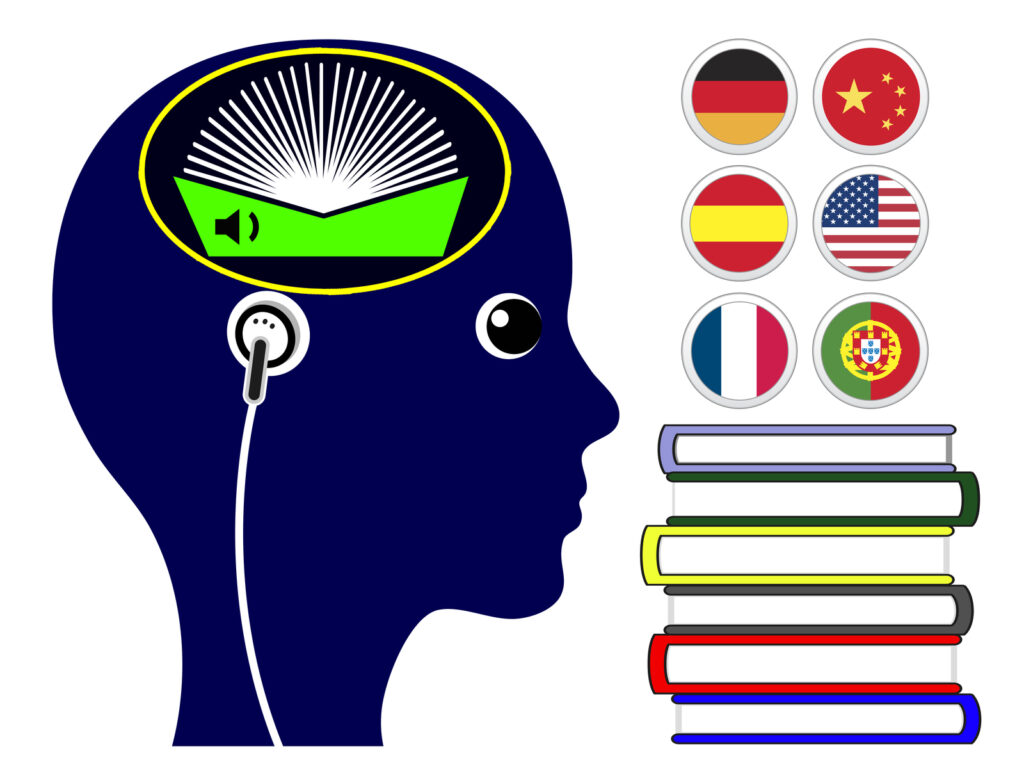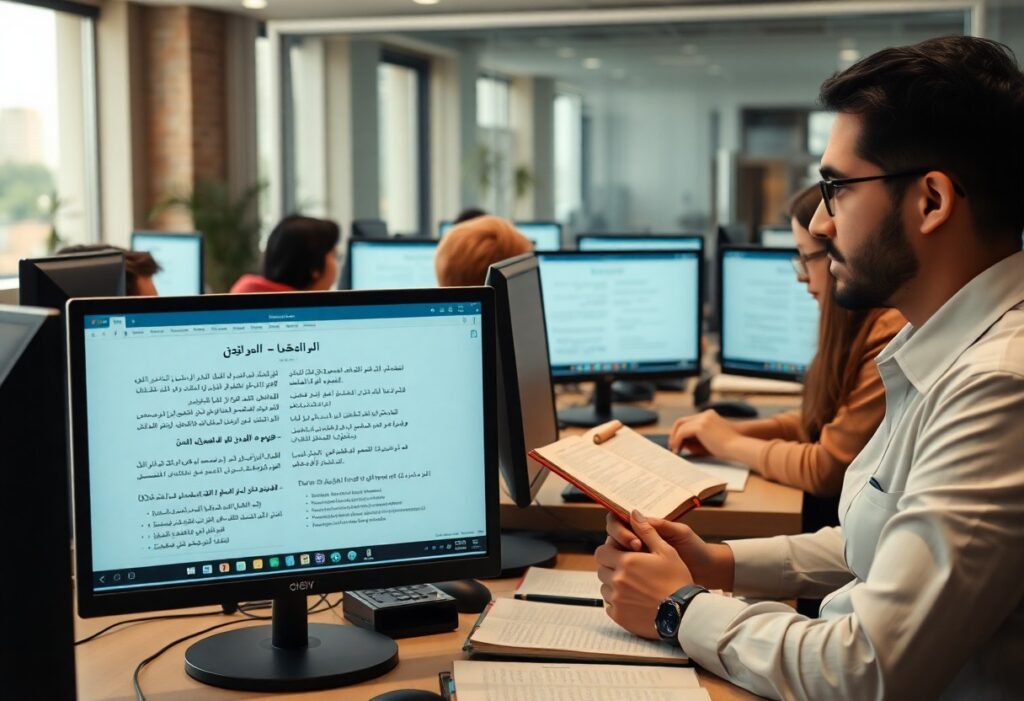Many individuals seeking to understand the intricacies of Portugal language translation to English often find it to be a complex linguistic endeavor. As you navigate this challenging field, it’s important to grasp the nuances of both languages, along with their cultural contexts. Effective Portugal language translation to English requires attention to grammatical differences, idiomatic expressions, and region-specific vocabulary. By honing your skills and combining technological tools with human insight, you can achieve accurate and meaningful translations that reflect the original text’s intent. This guide will equip you with the knowledge needed for successful translations.

Understanding the Complexity of Language Translation
While launching on your journey of Portugal language translation to English, it’s important to grasp the intricacies involved. The linguistic landscape is shaped by various factors, including vocabulary, grammar, and syntax, which can differ significantly between these two languages. Your understanding of these complexities will enhance the quality of your translations and help convey the intended meaning more accurately.
Linguistic Differences
Differences in grammar and syntax between Portuguese and English create significant challenges in the translation process. These variations can affect sentence structure, word order, and verb conjugation. As you examine into the nuances of Portugal language translation to English, be aware that effectively navigating these linguistic hurdles is vital for producing high-quality translations.
Cultural Nuances
Clearly, cultural nuances play a pivotal role in the accuracy of your translations. Each language carries its own set of cultural references, idioms, and expressions that may not have direct counterparts in the other language. By recognizing these elements, you can elevate your Portugal language translation to English beyond mere word-for-word translation, allowing for a more genuine communication of ideas.
Translation goes beyond mere vocabulary; it demands a deep understanding of the cultural context that shapes language use. For example, certain idiomatic expressions in Portuguese may reflect local customs and traditions, which would be unfamiliar to an English-speaking audience. By considering these cultural nuances in your translations, you can ensure that the subtle meanings and emotions are conveyed effectively, making your translations resonate with the target audience.
Contextual Relevance
If you want your translations to be truly effective, contextual relevance is key. The context in which a phrase or text is used can dramatically alter its meaning. This is particularly true in Portugal language translation to English, as cultural and situational factors can influence interpretation significantly. A thorough understanding of context allows you to choose the most appropriate words and expressions during translation.
Relevance to the context ensures that you capture the original message’s intention, tone, and subtleties. For example, a playful phrase in Portuguese might require a more serious tone in English, depending on the situation. By keeping context at the forefront of your translation efforts, you can deliver more accurate and meaningful translations that resonate with your audience while reflecting the essence of the source text.
How to Approach Portuguese-English Translation
Even with the advancements in technology, approaching Portugal language translation to English requires a strategic mindset. It’s important to grasp the nuances of both languages, as well as the cultural contexts that influence interpretation. By prioritizing a methodical approach, you can enhance the quality of your translations and ensure they resonate with your intended audience.
Assessing the Text Type
While tackling a translation project, it is important to first assess the type of text you are dealing with. Different text types – whether they are literary works, technical documents, or marketing materials – require distinct translation strategies. You must align your techniques accordingly to maintain the integrity and intent of the original message.
Identifying Target Audience Needs
An effective translation process involves understanding your target audience’s needs and preferences. Knowing who your readers are will guide your choice of vocabulary, tone, and level of detail in your translations. This understanding enables you to produce a rendition that is not only accurate but also engaging for your audience.
The key to successful Portugal language translation to English lies in audience awareness. By researching the demographics, cultural background, and expectations of your audience, you can tailor your translation approach to meet their unique needs. This level of customization ensures that your translations will resonate with readers and enhance their understanding of the content.
Setting Clear Translation Objectives
There’s a need to establish clear translation objectives before stepping into your project. Defining your goals helps to streamline the process and allows you to measure the success of your translations. By knowing what you aim to achieve, you can create a more focused and effective strategy for your work.
Portuguese-English translations benefit significantly from having well-defined objectives. By pinpointing the purpose of your translation—whether for professional publication, casual communication, or marketing—your approach can be aligned with the desired outcome. This not only informs your choice of style and vocabulary but also enhances the overall quality, ensuring that your translations meet the specific demands of your audience and the context of your work.
Key Tips for Accurate Translation
Not every translation is straightforward. Here are some key tips to enhance your approach to Portugal language translation to English:
- Understand the cultural context.
- Maintain the original meaning.
- Avoid literal translations.
- Use reliable references and resources.
Any successful translation hinges on skillful execution of these principles.
Maintain Original Meaning
You must prioritize retaining the original meaning of the text during your translation process. Portuguese and English differ in expressions and idioms, which means a direct word-for-word conversion can lead to confusion or misinterpretation. To achieve high-quality Portugal language translation to English, you should focus on the intent and context behind the words to effectively convey the message as intended by the original author.
Avoid Literal Translations
Assuming that direct translations are always accurate can lead to significant misunderstandings. There are many phrases and expressions in Portuguese that don’t translate well into English if taken literally. Instead, it’s important to capture the spirit of the phrase rather than just its individual components. This approach ensures that the translation resonates with the target audience.
Another area of concern is that various idiomatic expressions can confuse non-native speakers if translated without contextual consideration. By avoiding literal translations, you allow for phrases to maintain their nuanced meanings, creating a more fluid and natural reading experience for the English audience. In your Portugal language translation to English efforts, enhancing readability and relatability requires using equivalent expressions that make sense in the target language.
Use Reliable References and Resources
There’s a wealth of resources available to assist you in your Portugal language translation to English. Utilizing dictionaries, thesauruses, and language-specific guides is important for ensuring accuracy and appropriateness in your translations. Furthermore, consulting bilingual speakers can also provide invaluable insights into subtleties that may not be readily apparent.
Literal translations often lack the depth and richness of expression needed for effective communication. It’s vital to reference credible resources capable of addressing the complexities of both languages. By integrating reliable references and resources into your translation process, you enhance your capacity to produce high-quality translations that resonate with your audience, ultimately fulfilling the demands of the globalization landscape. This dedication to accuracy fortifies your work in Portugal language translation to English.
The Role of Cultural Sensitivity in Translation
Many aspects of language go beyond mere words, making cultural sensitivity important in the process of Portugal language translation to English. Your understanding of cultural nuances ensures that translations convey not just literal meanings but also the intentions and emotions behind the text. As you navigate this complex landscape, a deep appreciation of context will enable you to produce translations that resonate with the target audience while maintaining fidelity to the original work.
Understanding Cultural References
Cultural references are specific aspects of a culture that may not directly translate to another language. When you encounter these references in your translation work, it’s important to interpret their significance to convey the intended message accurately. Your grasp of both Portuguese and English cultures will guide you in finding equivalent phrases or footnotes that enhance the reader’s comprehension of the original text, elevating the quality of your Portugal language translation to English.
Navigating Regional Variations
Now, regional variations within the Portuguese language can present unique challenges in translation. As you engage in Portugal language translation to English, you might encounter dialects and expressions that differ significantly across regions. Understanding these variations allows you to choose the most appropriate terminology and tone for your translations, ensuring they align with the local dialect preferences of your audience.
Translation involves recognizing that Portuguese is spoken in several countries, each with its distinct idioms and expressions. By familiarizing yourself with these regional differences, you can adapt your translations accordingly. For instance, Brazilian Portuguese may employ different slang terms or formalities compared to European Portuguese. Such awareness ensures that your Portugal language translation to English captures the essence of the source material while remaining approachable and relevant to the target readership.
Adapting Idiomatic Expressions
For effective translation, adapting idiomatic expressions is key to conveying the right message. You will find that idioms often lose their impact when translated literally. By understanding the idiomatic expressions used in the original Portuguese text, you can choose equivalent English phrases that resonate with your audience, thus enhancing their overall experience of your translation work.
With a thoughtful approach, you can ensure that idiomatic expressions are not only translated but also culturally relevant. For example, a Portuguese idiom might reflect a cultural norm or practice. By finding an English equivalent that conveys similar sentiments or humor, you help maintain the text’s original flavor. This commitment to detail enriches your Portugal language translation to English, reinforcing your role as a skilled translator who respects both languages and cultures involved.
Factors Influencing Translation Quality
Despite the advancements in technology, various factors significantly impact the quality of Portugal language translation to English. Some of the key influences include:
- Source language proficiency
- Target language mastery
- Subject matter expertise
Perceiving these factors is crucial for achieving accurate and meaningful translations.
Source Language Proficiency
You must have a strong understanding of the source language to deliver high-quality Portugal language translation to English. Grasping the intricacies of grammar and syntax allows you to interpret the text effectively.
Target Language Mastery
Mastery of the target language is vital in ensuring that your translations resonate with the intended audience. A deep command of vocabulary and idiomatic expressions enables you to convey the original message’s nuances.
Plus, understanding cultural references in the target language enhances your translations. This cultural awareness enriches your work, helping to maintain the authenticity of the original text while ensuring it sounds natural in English.
Subject Matter Expertise
Little knowledge of the subject matter can hinder your ability to provide accurate translations. Familiarity with the topic allows you to select appropriate terminology and convey complex concepts effectively.
Targeting the correct terminology is crucial in specialized fields. For instance, translating legal or technical documents requires not just language skills but also industry knowledge, ensuring that your Portugal language translation to English is both precise and relevant.
The Impact of Technology on Translation
Now, technology has significantly altered the landscape of Portugal language translation to English, making it more accessible yet complex. While machine translation tools have improved, they are not infallible. You will find that these advancements have enhanced translation speed, but you still need to rely on human expertise for the subtleties and cultural nuances that technology often misses.
Evolution of Machine Translation Tools
Translation tools have evolved rapidly over the past decade, with artificial intelligence playing a pivotal role. Early systems often resulted in awkward, inaccurate translations. Today, machine translation tools for Portugal language translation to English have become more sophisticated, producing increasingly accurate results. However, despite the advancements, they still struggle with context and idiomatic expressions.
Integrating AI and Human Expertise
Clearly, the best results in Portugal language translation to English come from integrating artificial intelligence with human expertise. This combination allows for both efficiency and precision, addressing the limitations of machine translation alone. Skilled translators can interpret the underlying meanings and cultural nuances that AI overlooks, ensuring a more accurate and relevant translation for your purposes.
Human translators bring invaluable insight to the table. Your understanding of cultural references, idioms, and context ensures that translations not only convey the literal meaning but also resonate culturally with the target audience. This is especially important in a globalized world where the stakes of clear communication are higher than ever. By merging AI’s efficiency with your expertise, you can produce translations that meet the demands of diverse audiences.
Limitations of Current Translation Technologies
On the other hand, current translation technologies still exhibit significant limitations. While they have made leaps forward, challenges like interpreting complex texts, idioms, and cultural nuances remain apparent. For effective Portugal language translation to English, you cannot solely rely on machine-generated translations, as they may lead to misunderstandings or inaccuracies.
Plus, many machines fail to capture the emotional undertones of language. They often miss regional dialects, humor, and cultural references important for effective communication. While machine translation tools can handle straightforward texts, it’s your role as a human translator to fill in the gaps. Only through your expertise can you convey the subtleties and complexities that machines simply cannot grasp. Thus, understanding the limitations of these technologies is critical for better translation outcomes.
How to Choose the Right Translation Tools
Keep in mind that selecting the right tools for Portugal language translation to English is crucial for achieving high-quality results. With the advancements in technology, there are numerous options available, but not all tools are created equal. Consider your specific needs, whether you require speed, accuracy, or a balance of both, to ensure that the translations meet the desired level of proficiency.
Evaluating Machine Translation Software
Translation software has become an integral part of the Portugal language translation to English process. When choosing a machine translation tool, assess features such as user-friendliness, compatibility with various file formats, and the ability to handle idiomatic expressions. While these tools are getting better at accuracy, it’s important to recognize their limitations in understanding cultural context.
Assessing Human Translator Capabilities
Little comparison exists when it comes to human translators and machine translation tools. Skilled human translators bring a wealth of expertise, cultural knowledge, and contextual understanding that machines cannot replicate. This depth allows them to convey nuance and emotion in translations, which is particularly important in Portugal language translation to English.
Evaluating a translator’s capabilities can be instrumental in ensuring successful outcomes for your language projects. Look for qualifications, such as certifications and degrees in translation or linguistics, along with relevant experience in the specific field. Additionally, client testimonials and past work samples can provide invaluable insight into their proficiency in delivering quality translations that maintain the integrity of the original text.
Balancing Efficiency and Accuracy
Even as you explore different options for Portugal language translation to English, balancing efficiency with accuracy is critical. While machine translations can offer speed, they often lack the nuanced understanding needed for precise communication. Striking the right balance allows you to speed up the translation process without sacrificing the quality that human expertise provides.
Choose your tools wisely by weighing the benefits of machine translation against the unmatched quality of human translators. In many cases, a blended approach may be ideal—using machine translation for initial drafts and having human translators refine the final product. This strategy not only enhances efficiency but also ensures that the subtleties of language and culture are respected and preserved in your translations.
Strategies for Refining Translations
Your approach to refining translations from Portuguese to English can greatly enhance the final output. Utilizing effective strategies allows you to address the linguistic differences and cultural nuances inherent in the operation of Portugal language translation to English. It’s imperative to prioritize quality and clarity to meet the needs of your audience.
Review and Edit Draft Translations
Edit your draft translations rigorously to ensure accuracy and coherence. This step involves checking grammar, syntax, and vocabulary against the source text. Pay special attention to idiomatic expressions and cultural references that might not translate directly. A thorough review can significantly improve the quality of your Portugal language translation to English.
Incorporate Feedback from Native Speakers
Little can replace the insights gained from native speakers when refining your translations. They bring valuable perspective on colloquialisms, idiomatic expressions, and cultural nuances, which are often challenges in Portugal language translation to English. Their feedback not only elevates the quality of the translation but also ensures it resonates with the target audience.
Translations benefit immensely from incorporating feedback from native speakers, as they can spot subtle nuances that may be overlooked. Engaging with native speakers allows you to understand the intended tone and context, providing more natural translations that reflect the original meaning. For successful Portugal language translation to English, a collaborative effort with native speakers can transform your drafts and elevate your work to a professional standard.
Update Translations for Language Evolution
Incorporate continuous updates in your translations to adapt to evolving language trends and cultural shifts. Language is dynamic, and staying current is vital in Portugal language translation to English. Regular updates will ensure your translations remain relevant and accurate.
Feedback from the linguistic environment can guide you in recognizing shifts in vernacular, slang, and common usage. Agreements on language and expression can change quickly, so it is imperative to monitor these developments. This adaptive approach to Portugal language translation to English results in translations that not only connect with contemporary audiences but also reflect the most current cultural trends. Keeping your translations fresh will enhance their effectiveness and relevance.

Best Practices for Collaborative Translation
To achieve effective results in Portugal language translation to English, embracing best practices for collaborative translation is important. By fostering a cooperative environment, you can enhance the quality and accuracy of translations. Working effectively with a team of translators ensures that diverse linguistic skills and cultural insights are leveraged, leading to more nuanced translations.
Working with a Team of Translators
Little can divert the attention from the valuable perspectives that a team of translators brings to Portugal language translation to English. Each member can contribute their unique expertise, resulting in richer translations that capture cultural idioms and regional variations accurately.
Establishing Clear Communication Channels
Practices focused on clear communication are vital in collaborative translation efforts. Establishing open lines for sharing feedback, asking questions, and discussing interpretative choices can significantly enhance your translation process. This facilitates a better understanding among team members, fostering a cohesive approach to the task at hand.
Channels for communication can include tools like instant messaging apps, project management software, or dedicated forums. These platforms allow you and your team to remain in sync throughout the Portugal language translation to English process, sharing timely updates and addressing any challenges that arise efficiently. This not only promotes transparency but also helps maintain the overall quality of your translations.
Sharing Resources and Insights
Sharing valuable resources and insights with your translation team can elevate the quality of your work. By discussing references, glossaries, and style guides, you can ensure a consistent approach across all translations. This collective knowledge is indispensable for making informed decisions during the Portugal language translation to English process.
Understanding the importance of shared resources goes beyond just terminology. It involves pooling cultural references, idiomatic expressions, and regional nuances that may not be immediately apparent. By collaborating and sharing insights, your team can draw from a wider pool of knowledge, producing translations that are not only accurate but culturally resonant. Engaging in this collaborative effort will ultimately strengthen the integrity of your translations, making them more effective for your target audience.

How to Overcome Common Translation Challenges
Keep in mind that overcoming common translation challenges in Portugal language translation to English requires patience and strategic approaches. Familiarizing yourself with the intricacies of both languages can help you navigate linguistic differences, such as grammar and vocabulary. Cultural nuances should also inform your translation strategies, ensuring messages are conveyed accurately and effectively. Engaging with native speakers or utilizing reliable resources can further enhance your understanding and result in more polished translations.
Dealing with Ambiguities
An effective way to handle ambiguities in Portugal language translation to English is to provide context. Words or phrases that have multiple meanings can lead to confusion if left unexplained. Utilizing footnotes or clarifications within your translations can help convey the intended meaning and ensure the reader understands the message as you intended.
Handling Technical Language and Jargon
With technical language and jargon, precision is key in Portugal language translation to English. Familiarize yourself with the specific terminology relevant to the subject matter, as accurate translations are crucial for clear communication, especially in technical fields like medicine or engineering.
For instance, understanding industry-specific terms can significantly affect the overall quality of your translations. In technical documentation, translating terms without grasping their full context could result in misunderstandings or misinterpretations. It’s advisable to reference glossaries or consult subject-matter experts when dealing with technical language, ensuring you maintain the integrity of the original text while making it comprehensible to the English-speaking audience.
Managing Tight Deadlines
Dealing with tight deadlines in Portugal language translation to English can be daunting, but it is manageable with proper planning. Prioritize your work by breaking down projects into smaller tasks and setting specific milestones. This strategy not only helps you stay on track but also allows for more thorough reviews, ensuring quality even under pressure.
Jargon plays a significant role when managing tight deadlines. In fast-paced environments, the use of industry jargon can speed up communication, allowing you to convey complex ideas succinctly. However, it is crucial to balance speed with clarity—always ensure that the translated material remains accessible, even when working against the clock. By integrating familiarity with jargon and effective time management, you can deliver timely and accurate translations while maintaining high standards in your Portugal language translation to English efforts.
Assessing the Quality of Translations
Once again, evaluating the quality of translations is vital in Portugal language translation to English. To ensure that translations are accurate and culturally relevant, you must assess various elements, including linguistic precision, cultural context, and readability. Recognizing the unique challenges presented by both languages will help you understand what constitutes a high-quality translation. By employing comprehensive assessment criteria, you can achieve optimal results that benefit both the source and target audiences.
Criteria for Quality Evaluation
While assessing quality, you should focus on criteria such as linguistic accuracy, contextual relevance, and stylistic consistency. Each of these factors plays a significant role in the effectiveness of your translations. Competent translators must be adept at navigating the complexities of grammar, syntax, and vocabulary inherent in the Portugal language translation to English. Additionally, considering idiomatic expressions and cultural references ensures that your translations resonate with target audiences.
Utilizing Feedback Mechanisms
On your journey to refining translation quality, implementing feedback mechanisms is necessary. Gathering critiques from clients, colleagues, and target audience members provides valuable insights. This process not only enhances your future work but fosters a collaborative approach in the field of Portugal language translation to English. By actively soliciting feedback, you can identify areas for improvement and address potential misunderstandings within your translations.
Evaluation through feedback mechanisms helps you gauge the effectiveness of your translations. By creating channels for constructive criticism, you will develop a clearer understanding of how well your translations convey the intended meaning and cultural nuances. Encouraging open communication with clients and peers allows you to make informed adjustments to your approach, ultimately leading to better outcomes in Portugal language translation to English.
Continuous Professional Development
With the dynamic nature of languages, committing to continuous professional development is vital for you as a translator. Engaging in ongoing training, workshops, and forums allows you to stay up-to-date with the latest trends and tools in Portugal language translation to English. Investing in your professional growth enhances your proficiency and ensures that your translations maintain relevance and accuracy.
Assessing your skills through continuous professional development helps you adapt to the evolving demands of the translation market. By seeking opportunities to learn from industry experts and participating in educational initiatives, you refine your understanding of the complexities involved in the Portugal language translation to English. This active pursuit of knowledge not only boosts your confidence but also positions you as a trusted translator capable of addressing varied linguistic challenges.
The Importance of Post-Translation Processing
Unlike initial translation, post-translation processing is crucial for refining your Portugal language translation to English. This phase enhances clarity, accuracy, and cultural relevance, ensuring the final product resonates well with the target audience. By implementing effective post-translation measures, you can create a polished translation that meets the specific linguistic and cultural needs of English-speaking readers.
Final Proofreading Techniques
Assuming you’ve completed your initial translation, final proofreading techniques become imperative to catch any errors that may have slipped through. This step is vital for ensuring that your Portugal language translation to English is grammatically correct and consistent in tone and style, ultimately improving the quality of your translated text.
Contextual Adjustments for Target Audience
If you want your translation to resonate effectively with your audience, contextual adjustments are necessary. These modifications cater to the cultural nuances and expectations of the English-speaking demographic, transforming your Portugal language translation to English into a text that feels natural and relatable.
This attention to context not only enhances readability but also ensures that cultural references, idioms, and stylistic choices align with the values and behaviors of your target audience. Being sensitive to these variations allows your translation to bridge gaps and foster a deeper connection with readers, making it more than just a straightforward conversion of words. As a result, your effective communication will stand out, delivering the intended message in a manner that engages and informs.
Formatting and Presentation Considerations
If you overlook formatting and presentation, the impact of your Portugal language translation to English may be diminished. Clear organization and visually appealing layouts enhance readability, ensuring that your message is effectively communicated to your audience.
Contextual formatting enhances comprehension by utilizing appropriate headings, bullet points, and spacing for your translated text. These elements not only contribute to visual clarity but also aid in emphasizing key points, making information easier to digest. In Portugal language translation to English, presenting your text in a polished manner is as vital as the words themselves, as it reflects professionalism and respect for your audience’s reading experience.
Ethical Considerations in Translation
After understanding the complexities involved in Portugal language translation to English, it’s vital to address the ethical considerations that underpin this process. Translators must navigate various responsibilities, ensuring accuracy while respecting the integrity of the original text. This includes maintaining confidentiality, cultural sensitivities, and providing transparent services, all of which are vital for fostering trust within the translation industry.
Maintaining Confidentiality
Any professional translation involving Portugal language translation to English must prioritize confidentiality. As a translator, you may encounter sensitive or proprietary information, and it’s your responsibility to protect this data. Upholding confidentiality fosters trust between you and your clients, ensuring that your translations remain discreet and secure.
Respecting Cultural Sensitivities
Assuming a understanding of cultural nuances is fundamental when engaging in Portugal language translation to English. You must acknowledge that words convey not just literal meanings but also cultural implications, which can vary dramatically from one language to another. This awareness helps you avoid misinterpretations and fosters effective communication.
With the vast array of regional differences and cultural references, respecting cultural sensitivities becomes paramount. You should familiarize yourself with relevant idioms, traditions, and values that may influence the text, ensuring you remain sensitive and convey the intended message accurately. By taking cultural nuances into account, you enhance the effectiveness of your translations, making them resonate with the target audience.
Providing Transparent Services
Respecting the need for transparency, you should openly communicate your translation process when engaging in Portugal language translation to English. This includes clarifying your methodologies, timelines, and potential challenges, thereby allowing clients to make informed decisions about their projects. Transparency helps build credibility and enhances client satisfaction.
Services that embrace transparency lead to a more collaborative relationship between you and your clients. By demystifying the translation process, you instill confidence and foster stronger partnerships. Clients appreciate when you outline your approach, allowing them to understand the complexities of translating from Portuguese to English and the meticulous attention required to convey their messages accurately.
Conclusion
So, as you explore the intricacies of Portugal language translation to English, it’s crucial to recognize the complexity this endeavor entails. Your understanding of both linguistic elements and cultural nuances will enhance your ability to achieve precise translations. While machine tools can assist in your efforts, the depth of your experience brings invaluable insight to this process. By merging your linguistic skills with technological advancements in Portugal language translation to English, you can address the evolving demands of global communication effectively, ensuring that the essence of the original text is preserved and accurately conveyed.



